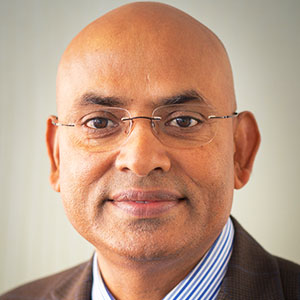
A former researcher at Boys Town National Research Hospital in Nebraska has agreed to a five-year ban from the U.S. Office of Research Integrity (ORI) on receiving federal science funding after being found guilty of having fabricated data in numerous grant applications and articles.
According to the ORI, Sudhakar Yakkanti, a Harvard-trained cancer specialist who from 2004 to 2012 held the post of Director of the Cell Signaling, Retinal & Tumor Angiogenesis Laboratory at Boys Town:
intentionally, knowingly, or recklessly falsified and/or fabricated figures in the following eight (8) unfunded NIH grant applications, one (1) funded NIH grant application, seven (7) publications, and two (2) unpublished manuscripts
Yakkanti, the ORI found, doctored his data in these and other ways:
falsifying an image from an in vivo CNV experiment by falsely relabeling an image representing results from an experiment with the anti-angiogenic molecule hexastatin (α6NC1) to represent results from different CNV experiments with different anti-angiogenic molecules
falsifying and/or fabricating bar graphs in Figure 9B of grant application R01 CA166195-01, which was based on the falsified image in Figure 9A (right panel) of grant application R01 CA166195-01
falsifying microscope images of endothelial tube formation assays by reusing and falsely labeling one image as three different experiment
Yakkanti has held editorships at several journals, including the Journal of Bioanalysis & Biomedicine and the Journal of Cancer Science and Therapy, both of which are OMICS titles. OMICS, as many Retraction Watch readers may recall, is largely viewed as predatory, and has been ordered to pay the U.S. government $50 million for “unfair and deceptive practices.”
‘So blatant’
A source familiar with the case against Yakkanti, which dates back many years, told us that
It appeared that he a portfolio of images that he reused over and over again to represent different experiments throughout his publishing career. The images were so obviously just reused — sometimes cropped, sometimes rotated — that for the most part there wasn’t a great amount of forensic work needed.
Given the lack of subtlety, the source told us that peer reviewers — both at journals and particularly at funding agencies, could, and indeed should, have spotted Yakkanti’s misconduct long ago:
If you look at all the grants that were submitted, many cited other work, and cited work in which these images were recycled. I think it was so blatant that it could have been picked up.
The ORI finding states that Yakkanti has agreed to instruct the relevant journals to retract, or in some cases, correct, his publications. Here’s the list:
- Biochemistry 2000;39(42):12929-12938
- Proc. Natl. Acad. Sci. U.S.A. 2003;100(8):4766-4771
- The Journal of Clinical Investigation 2005;115(10):2801-2810
- Invest. Ophthalmol. Vis. Sci. 2009;50(10):4567-4575
- Pharmaceutical Research 2008;25(12):2731-2739
- Scientific Reports 2014;4(4136):1-9
- Current Eye Res. 2010 Jan;35(1):44-55
On some of the papers, Yakkanti appears as Akulapalli Sudhakar. Together, these papers have been cited more than 650 times, according to Clarivate Analytics’ Web of Science, with 360 of those for the 2003 PNAS paper. So far, to our knowledge, none of these articles has been retracted or corrected.
Yakkanti, who left Boys Town for the Stanford Research Institute, now appears to be working as an associate vice president at United Scientific Group, a Texas-based outfit that puts on conferences and publishes journals. Kenneth Blum, who launched the non-profit organization, has not responded to a request for comment.
According to Yakkanti’s LinkedIn page, his duties include:
Provid[ing] support to draft journal & conference policies and scientific ethics to publish and organize national and international scientific conferences…
Like Retraction Watch? You can make a tax-deductible contribution to support our work, follow us on Twitter, like us on Facebook, add us to your RSS reader, or subscribe to our daily digest. If you find a retraction that’s not in our database, you can let us know here. For comments or feedback, email us at [email protected].
USG is mentioned here:
http://flakyc.blogspot.com/2019/08/united-scientific-group-will-promulgate.html
Blood . 2007 Aug 15;110(4):1168-77. doi: 10.1182/blood-2007-01-066282. Epub 2007 Apr 10.
Regulation of COX-2 Mediated Signaling by alpha3 Type IV
https://www.ncbi.nlm.nih.gov/pmc/articles/PMC1939900/
Chandra Shekhar Boosani,1 Arjuna P. Mannam,2 Dominic Cosgrove,3 Rita Silva,4 Kairbaan M. Hodivala-Dilke,4 Venkateshwar G. Keshamouni,5 and Akulapalli Sudhakarcorresponding author1,6,7
1Cell Signaling and Tumor Angiogenesis Laboratory, Department of Genetics, Boys Town National Research Hospital, Omaha, NE;
2Department of Neurology, University of Connecticut School of Medicine, Hartford Hospital;
3Gene Expression Laboratory, Department of Genetics, Boys Town National Research Hospital, Omaha, NE;
4Cancer Research UK, Cell Adhesion and Disease Laboratory, Richard Dimbleby Department of Cancer Research, St Thomas’ Hospital, London, United Kingdom;
5Division of Pulmonary and Critical Care Medicine, Department of Internal Medicine, University of Michigan Medical Center, Ann Arbor;
6Department of Biomedical Sciences, Creighton University School of Medicine, Omaha, NE;
7Department of Biochemistry and Molecular Biology, University of Nebraska Medical Center, Omaha corresponding author.
Pubpeer.
https://pubpeer.com/publications/363F43BCADB2EC5ECDF3FDA528D632
A good read — and a reminder that integrity doesn’t change; a fraud remains a fraud.
https://retractionwatch.com/2025/08/28/exclusive-sonia-melo-sues-md-anderson-cancer-center-misconduct-finding/